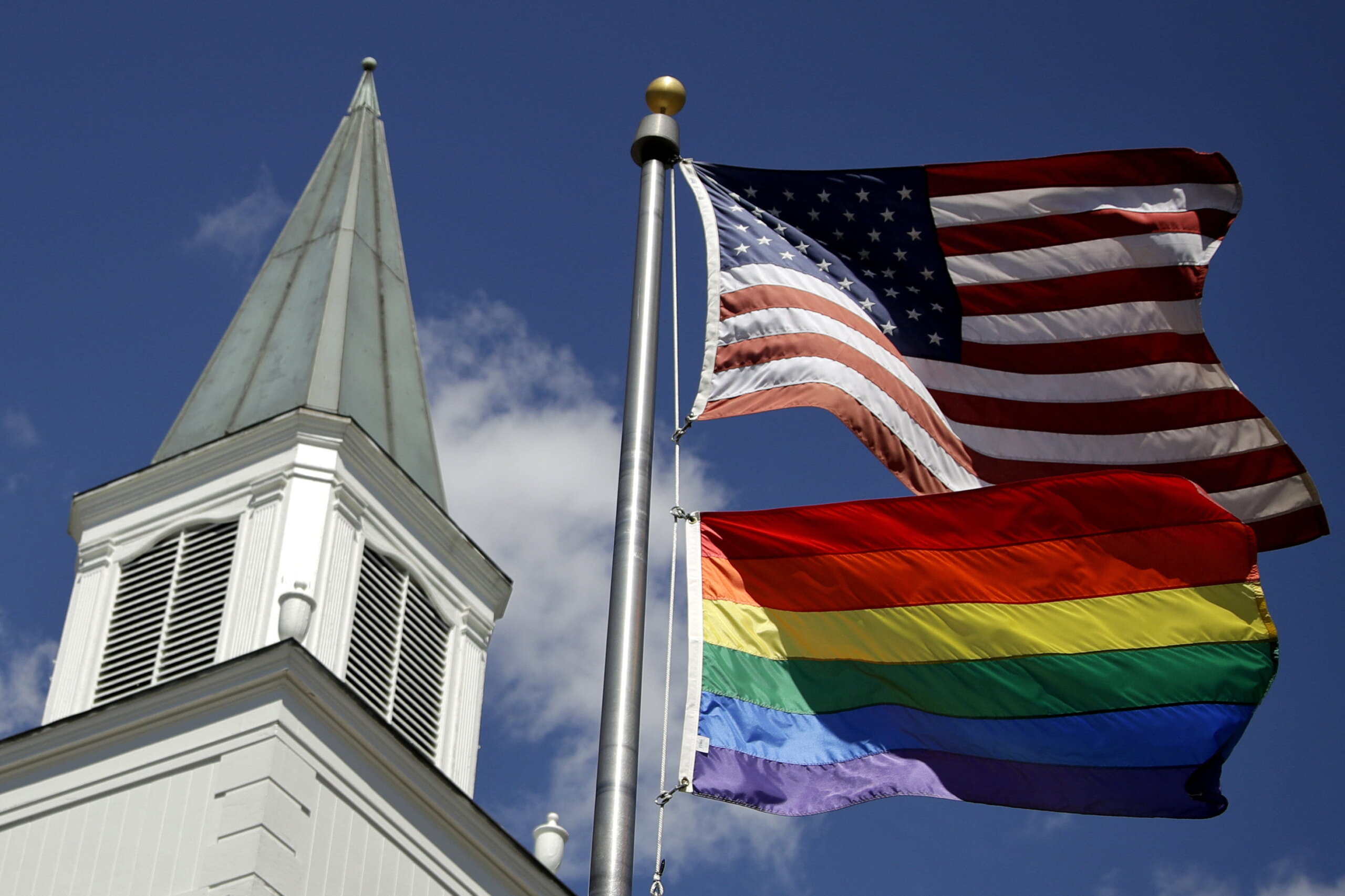A record number of Americans say they support LGBTQ2S+ equality despite unprecedented legislative attacks on trans youth in the United States.
Nearly eight in 10 survey respondents in the U.S. (79 percent) are in favour of LGBTQ2S+ non-discrimination laws, according to data released by the Public Religion Research Institute (PRRI) last week. That number represents a record high for PRRI: in 2015, 71 percent of survey-takers expressed support for federal legislation preventing LGBTQ2S+ people from being fired or denied basic necessities like housing and health care because of their identities.
The results, published on March 17, show that a majority of Americans across all religions and political parties favour inclusive LGBTQ2S+ civil rights laws. Among faiths, support is highest among Unitarian Universalists (97 percent) and Buddhists (87 percent) and lowest among Jehovah’s Witnesses (59 percent) and white evangelical Protestants (61 percent).
Republicans, accordingly, lag behind both Democrats (89 percent) and Independents (82 percent) when it comes to supporting LGBTQ2S+ non-discrimination laws. Two in three (65 percent) favour proposals like the Equality Act, which would grant LGBTQ2S+ people equality under the law in all 50 U.S. states. Currently, 29 states lack equal protections for queer and trans residents in areas like education, retail, credit and public accommodations, according to the Human Rights Campaign (HRC).
PRRI notes that the results show that Americans’ views on LGBTQ2S+ equality do not match the policies being pushed by U.S. lawmakers.
“This massive 50-state study brings into sharp focus the contradiction between increasing support for LGBTQ rights, including rights for transgender Americans, and the proliferation of laws seeking to restrict or abolish those rights over the last year,” Robert P. Jones, the founder and CEO of PRRI, said in a statement accompanying the report.
At least 238 bills targeting the LGBTQ2S+ community have been proposed at the state level in the U.S. so far this year, with the majority targeting trans youth. Governors in Iowa and South Dakota have signed laws preventing trans student athletes from competing in school sports teams in alignment with their gender identity, while similar legislation in Indiana is currently sitting on its governor’s desk. Alabama is close to outlawing gender-affirming medical care for trans minors under 19.
“This massive 50-state study brings into sharp focus the contradiction between increasing support for LGBTQ rights, including rights for transgender Americans, and the proliferation of laws seeking to restrict or abolish those rights over the last year.”
In addition to those bills, Texas Gov. Greg Abbott issued a directive in February ordering the state’s child welfare services to investigate families who affirm trans youth for abuse. That memorandum was temporarily blocked by a court earlier this month as a lawsuit seeking to fully overturn the policy proceeds through the legal system.
Although PRRI did not poll Americans about those proposals, U.S. respondents expressed broad support on a variety of LGBTQ2S+ rights issues. Nearly seven in 10 Americans (68 percent) support same-sex marriage, up from 54 percent in 2014. As above, Unitarian Universalists were the most likely to back marriage equality—96 percent said all couples should have the right to wed—while support was lowest among white evangelical protestants (35 percent) and Jehovah’s Witnesses (22 percent).
Even as Republican support for LGBTQ2S+ non-discrimination laws grows, conservatives remain opposed to same-sex unions. Fewer than half (48 percent) said LGBTQ2S+ couples should have the right to legally marry—itself a marked increase from 2014, when just 35 percent said the same.
Americans were more slightly divided regarding whether businesses and other places of public accommodation should have the right to refuse service on the basis of their religious faith. Two thirds of respondents (66 percent) opposed allowing businesses to turn away customers for being LGBTQ2S+, including 85 percent of Democrats and 66 percent of Independents. Republicans were again in the minority, with just 44 percent believing that LGBTQ2S+ people should not be denied service because of who they are.
Although Unitarian Universalists once more led the pack, with 82 percent opposing religiously-based refusals, they were joined by Muslims (77 percent) and people of the Jewish faith (76 percent). This time white evangelical protestants ranked lowest (38 percent), with Orthodox Christians (43 percent) and Mormons (44 percent) also expressing the lowest support for the rights of LGBTQ2S+ people to equal service.
More than 22,000 U.S. adults were polled for the report through a series of online interviews. According to PRRI, the survey’s margin of error is 0.8 percentage points.


 Why you can trust Xtra
Why you can trust Xtra


